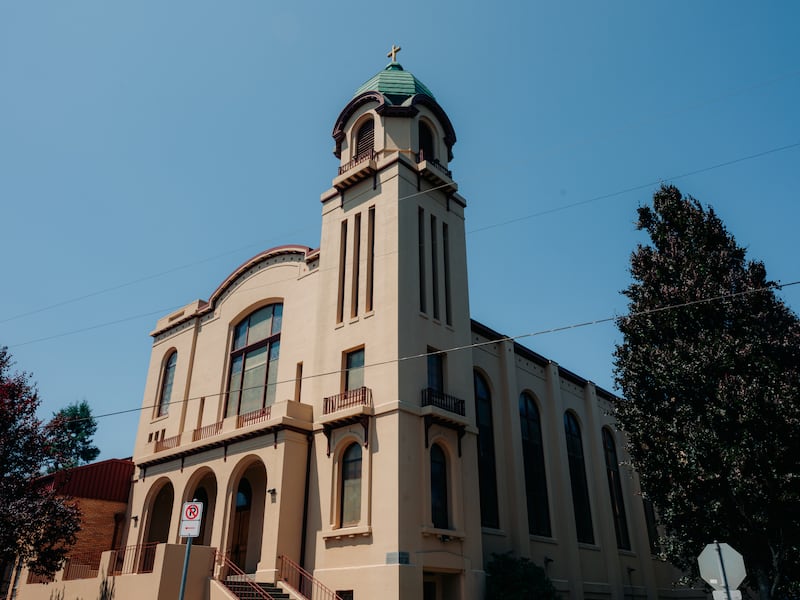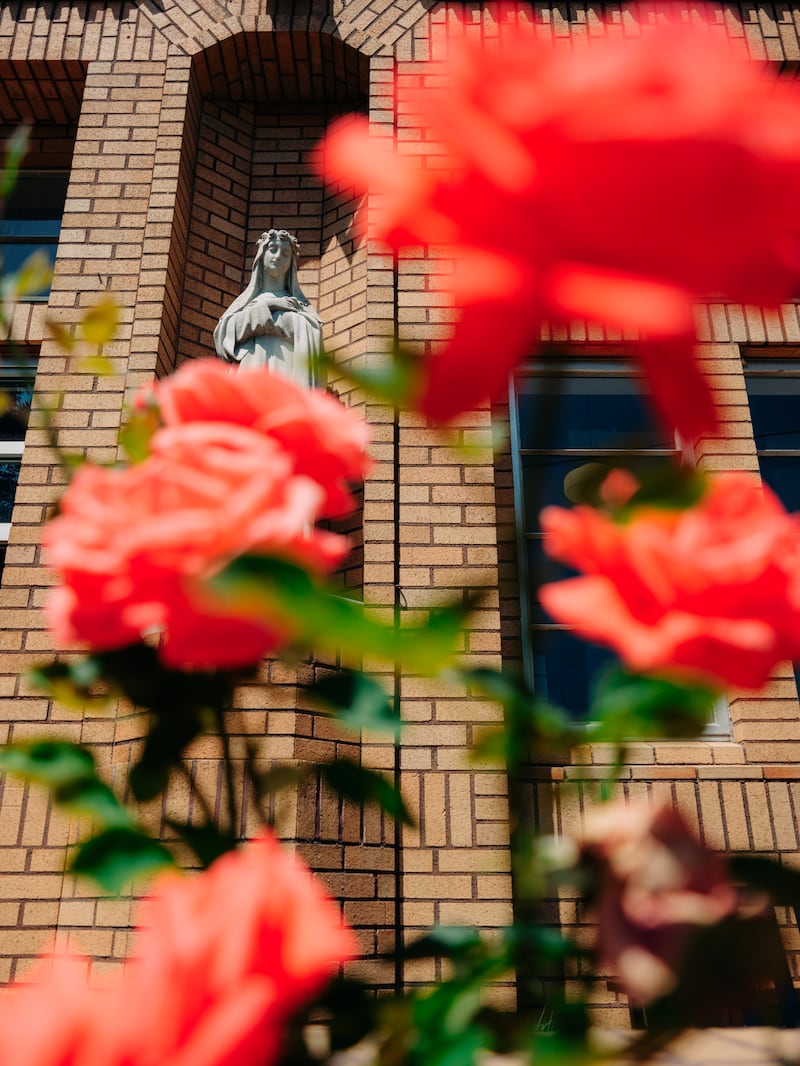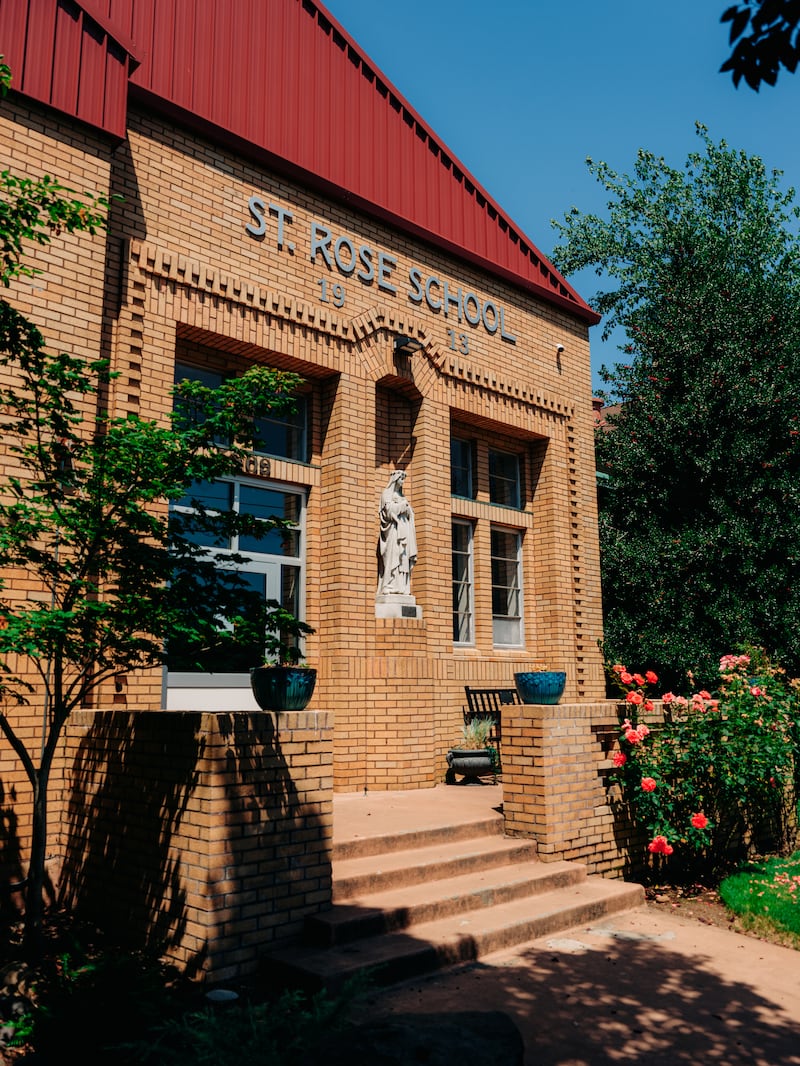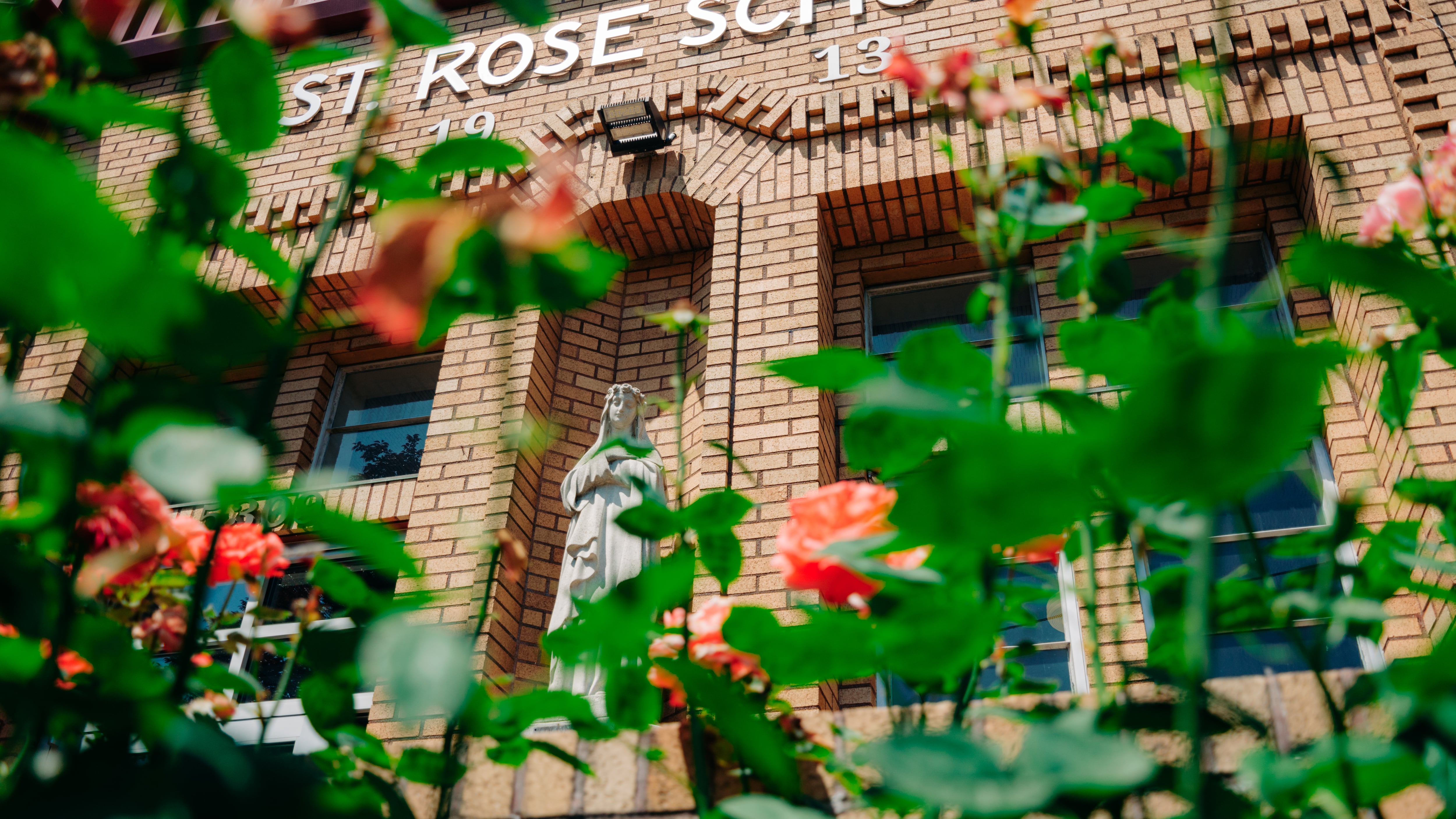Two weeks ago, at the behest of Archbishop Alexander Sample, the Archdiocese of Portland abruptly pulled the plug on its Department of Catholic Schools. The superintendent and the assistant superintendent, both women, were fired.
The issue that likely led to the personnel shakeup: a community rebellion against Sample’s suggestion that students be addressed by their birth pronouns rather than their chosen pronouns.
News of the closure, first reported June 23 by WW, occurred on the eve of Portland Pride and has turned the 15 Catholic schools in this city—especially St. Rose School in Northeast Portland—into the local epicenter of an escalating battle over transgender children. Across the nation, disputes over Pride in schools have sparked heated demonstrations and even brawls. In Portland, another combustible element is involved: religious education.
Yet what’s actually happening in the archdiocese is shrouded by euphemism and silence. (These are, after all, private institutions.) We’ve tried to answer some of the more vexing questions.
What happened to the Department of Catholic Schools?
Principals and pastors of Portland-area Catholic schools sent emails to staff and teachers on June 22 and 23, alerting them to the firings of Supintendent Dr. Jeannie Ray-Timoney and her deputy, and the closure of the department. One of them asked that teachers refrain from sharing the information widely until the archdiocese made a formal announcement.
“Yesterday, Archbishop Sample let pastors of schools know of an important change for Catholic schools for our Archdiocese,” Father Matt Libra of St. Rose Church and School said in a statement to parents on Friday. “The Department of Catholic Schools has been ‘temporarily’ closed.”
The principal of The Madeleine, a Catholic K-8 school in Northeast Portland, asked teachers in an email on Friday to pray for the superintendent and assistant superintendent. “I personally have worked with [Ray-Timoney] for 21 years and couldn’t have thought of a better person to serve as Superintendent,” the principal wrote. “I consider her a friend and she will be missed.”
It was not until after WW broke news of the closure that the archdiocese posted a brief statement on its website addressing it. In the statement, the archdiocese said all normal functions would continue “as we work to reevaluate how to best integrate schools more fully into our mission.”
Along with his announcement of the department’s closure, Libra informed families that the pastoral center and a team of principals would take on the responsibilities formerly held by the DCS.
The pastoral center refers to the institution of the archdiocese itself, from Sample to the many offices and employees under his control—the Department of Catholic Schools being one of them.
“If he wanted to make himself superintendent of catholic schools he could do that,” says Arthur Canales, a theology professor at Marian University in Indianapolis. “It would be unheard of, but it’s definitely within his right to do so.”

Why did Sample so abruptly shutter the Department of Catholic Schools?
To answer that question, we have to rewind a few months.
On Jan. 25, Archbishop Sample quietly released a 17-page document titled “A Catholic Response to Gender Identity Theory.”
The document was presented as a resource for Catholic schools: In it, Sample writes that gender is not a matter of fluidity, but rather a binary—and that personal pronouns, too, are not a matter of interpretation. The document was presented not as a mandate or policy, but as guidelines.
The document caused ripples of discomfort across the 15 schools within the Portland Archdiocese.
Tensions heightened when, earlier this month, the principal at St. Rose School began asking teachers, one by one, to agree to the guidelines laid out in Sample’s document.
Parishioners from St. Andrew, a progressive Catholic church on Northeast Alberta Street, began meeting in March in response to the guidelines. By June, the result was a community petition that had garnered more than 1,000 signatories, alongside numerous letters submitted by parents and a cover letter that asked for a meeting between Sample and a small group of representatives that had put together the petition.
An initial letter was submitted by St. Andrew parishioners in the spring and was met with a lackluster response.
“It was just like, ‘I confirm that I received your documents.’ No further anything since then,” says Claire Willett, a queer St. Andrew parishioner and one of the primary organizers of the petition. “We had hoped that the [second] letter that came from the bigger coalition would potentially generate more interest in potentially him meeting with us.”
The petition, signatures and letters submitted by parents, teachers and parishioners was dropped on the doorstep of the archdiocese on June 21.
Not 24 hours later, Sample closed the Department of Catholic Schools.
What does Sample say?
The archbishop insisted in a statement published to the archdiocese’s website that the closure had nothing to do with his gender document.
“The Archdiocese of Portland in Oregon’s Department of Catholic Schools is temporarily closed as we work to reevaluate how to best integrate schools more fully into our mission,” the statement begins. “This decision is unrelated to the publication of ‘A Catholic Response to Gender Identity Theory’ or to one school adopting a classical education model.”
However, Sample did not say the closure was unrelated to the document dropped on his doorstep the day before.
Sample was appointed archbishop of the Archdiocese of Portland in 2013 by Pope Benedict XVI, who was conservative in his views on abortion and sexuality. While Sample is considered conservative by many Portland Catholics, he appears to be in step with other archdioceses across the country that remain more socially conservative than the current pope, Francis.
“There’s a whole group of archbishops and bishops who pay lip service to Pope Francis,” Canales the theology professor says. “They’re called to be obedient to the pope, but they don’t always do that.”
In Portland, Sample is a fish out of water. Many of the school administrations he oversees have progressive views on sexual orientation, gender fluidity and abortion, and have student-led “ally clubs” matching the liberal leanings of their communities. Ray-Timoney, the superintendent Sample fired last week, did not respond to interview requests. But those familiar with her say she often served as a buffer between the principals of the archdiocesan schools and Sample himself—possibly putting her in the crosshairs of Sample’s beef with the petitioners lobbying against his January document.
“They’re kings of their kingdoms. The Catholic Church has a very hierarchical structure,” Canales says. “Even though laypeople have the numbers and the masses…they don’t have control.”
Neither Sample nor his office have made any statement since. His office did not respond to multiple requests for comment.

How has this impacted the community?
Since the abrupt closure, parents and teachers in Portland’s Catholic schools—and in some parishes—have felt a mix of confusion, instability and anxiety.
For the family of one trans student, who asked to remain anonymous but goes to a Portland-area Catholic high school, the statement didn’t seem to mean much at first, but as some schools have begun to implement policy following the archbishop’s guidelines, concern has crept in.
“If their school has to implement these rules, I don’t know what we’re going to do,” the student’s mother says. “Frankly, it’s not going to make them go back to being the person they are on their birth certificate.”
The closure of DCS has only increased fears that Sample’s guidelines might become concrete policy. “Staying at the school under those rules isn’t really an option,” the student tells WW. “It’s either hope that it doesn’t get implemented or leave if it does.”
The worry extends beyond trans students and their parents.
Debbie Murphy is a doctor at a Providence hospital (itself a Catholic institution), a parent to children in Catholic schools, and a parishioner at a church with a large LGBTQ community.
“The statement that the archdiocese put out was about children and schools, but it was an immediate gasp of, ‘What does this mean for our patients?’” Murphy says.
What happens now?
Observers have struggled to make sense of Sample’s actions.
“I think that the fact that we’re in summer, and there’s the possibility of certain decisions coming down the pipeline at the 11th hour, is scary to people,” says Molly Hiro, an associate professor at the University of Portland and parent of a student in the Catholic school system.
It’s unclear if and when Sample will install a new superintendent. It’s also unclear whether he’ll make his gender guidelines school policy in the coming year. The Portland Archdiocese insisted in its website statement that no school functions would be disrupted by the closure.
“If this keeps going down this road, a lot of [parents] will pull their kids out of school,” Canales says. “If my kid’s going to be ostracized at Catholic school, I want to save my $3,000 or $5,000 a year.”
It’s been widely rumored, according to two sources, that the guidelines would become policy when the 2023-24 school year begins in the fall.
But amid the confusion and anxiety within Portland’s Catholic schools, one thing is indisputable: Sample can do as he pleases. “The archbishop is extremely significant,” Canales says. “He is one step below the pope. So he is the king of his kingdom.”
Sophie Peel contributed reporting to this story.

